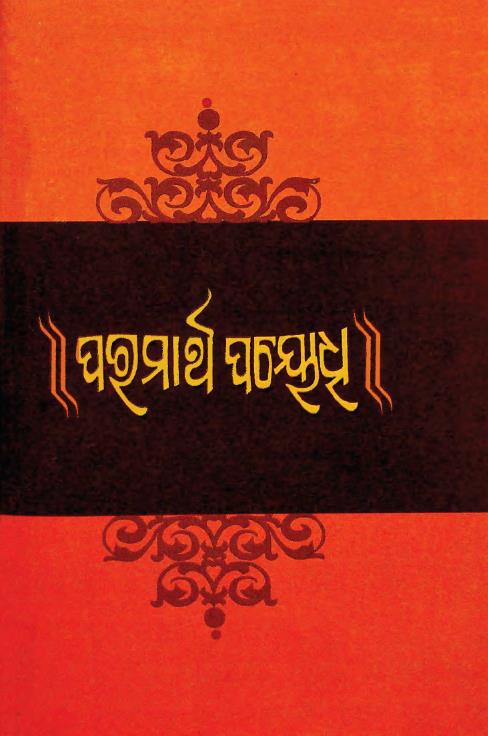In the vast ocean of Indian philosophy, the Philosophy Paramartha Payodhi, Vol. 02 is a remarkable contribution that delves deep into the intricate layers of Upanishadic thought, exploring the tenets of mysticism and the profound insights of ancient sages. Edited by the esteemed Radhamohan Rajendra Deb, Mahimohan Tripathy, and Asit Mohanty, this volume published in 2013 serves as a beacon for those who seek to understand the nuances of philosophical discourse surrounding the Upanishads, one of the foundational texts of Indian philosophy.
The Upanishads, often regarded as the culmination of Vedic thought, present a rich tapestry of philosophical concepts that engage with fundamental questions of existence, consciousness, and the nature of reality. In Philosophy Paramartha Payodhi, the editors meticulously examine these texts, drawing connections between ancient wisdom and contemporary philosophical dialogues. The volume is designed not only for scholars but also for seekers of truth who wish to reflect on the deeper meanings behind existence and consciousness.
One of the critical tenets explored in this volume is the idea of Brahman—the ultimate reality that transcends the material universe. The editors elaborate on the relationship between Brahman and Atman, emphasizing that understanding oneself is key to understanding the universe. This interconnectedness is a recurring theme in the Upanishads and serves as a foundational principle in Vedanta philosophy. The text encourages readers to engage in self-inquiry and meditation, fostering a personal connection to these profound ideas.
The volume also navigates the realm of mysticism, inviting readers to appreciate the mystical dimensions of Upanishadic thought. Mysticism in this context is not merely about transcendental experiences but involves a deep, intuitive understanding of the self and the universe. This exploration resonates with the spiritual practices that have long been a part of Indian heritage, where meditation, devotion, and philosophical inquiry come together. Through these discussions, Philosophy Paramartha Payodhi serves as a bridge connecting ancient wisdom to contemporary spiritual practice.
What sets this work apart is its engagement with modern philosophical trends. The editors skillfully navigate the dialogue between traditional Indian philosophy and contemporary theories, making the content relevant to today’s readers. This integration of old and new encourages a deeper contemplation of how ancient wisdom can inform modern existential inquiries and ethical considerations. The volume acts as an invitation for modern thinkers to revisit these timeless questions through the lens of the Upanishadic sages.
Books Info
| Books name | Paramartha Payodhi / ପରମାର୍ଥ ପୟୋଧି |
| Author | Radhamohan Rajendra Deb; Mahimohan Tripathy, Asit Mohanty, Ed. |
| No Of pages | 413 |
| Publisher | NA |
| Publication | 2013 |
| Printed At | Shiram Screen Printing |
| Distributor | NA |

